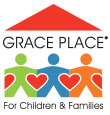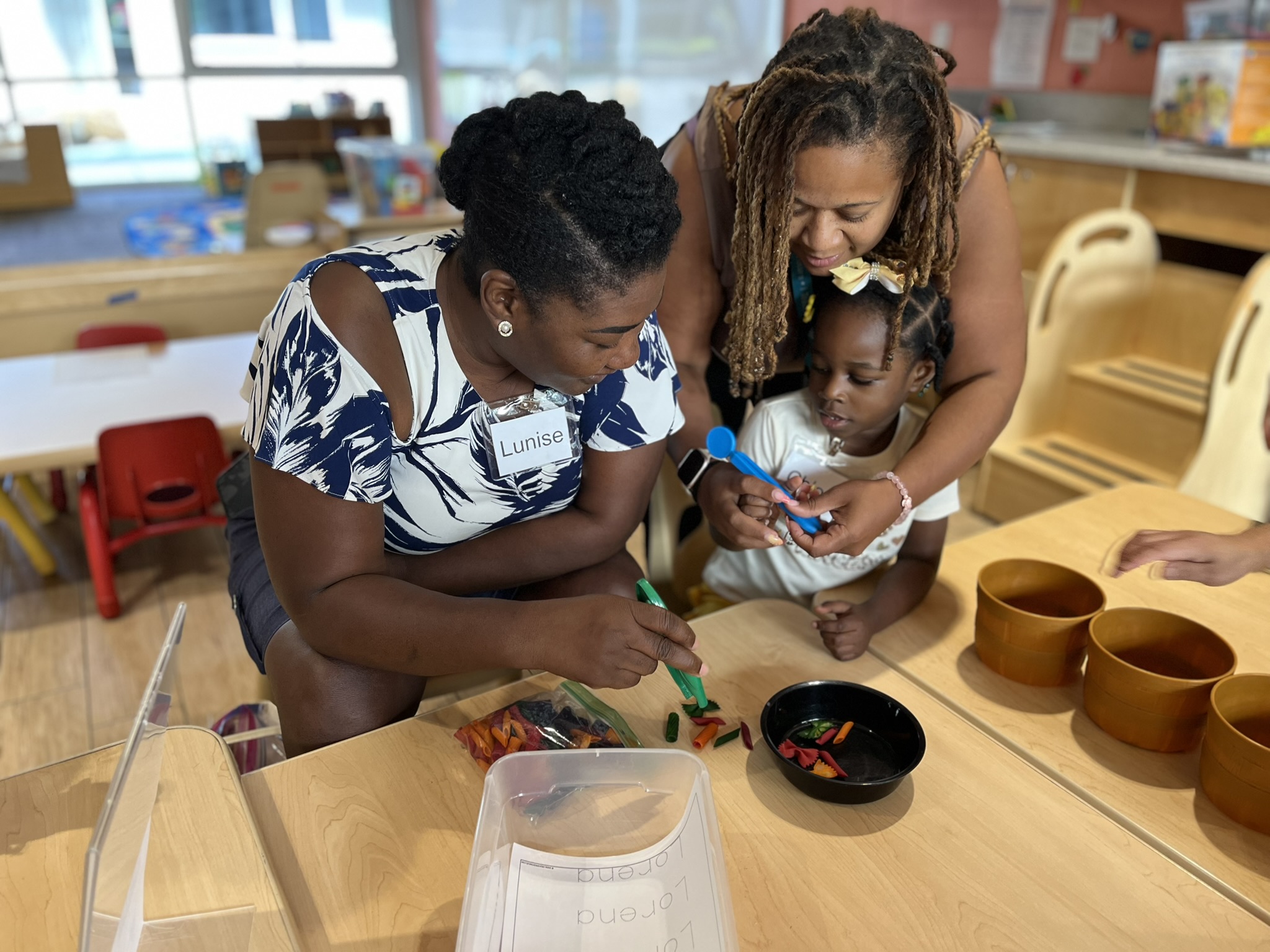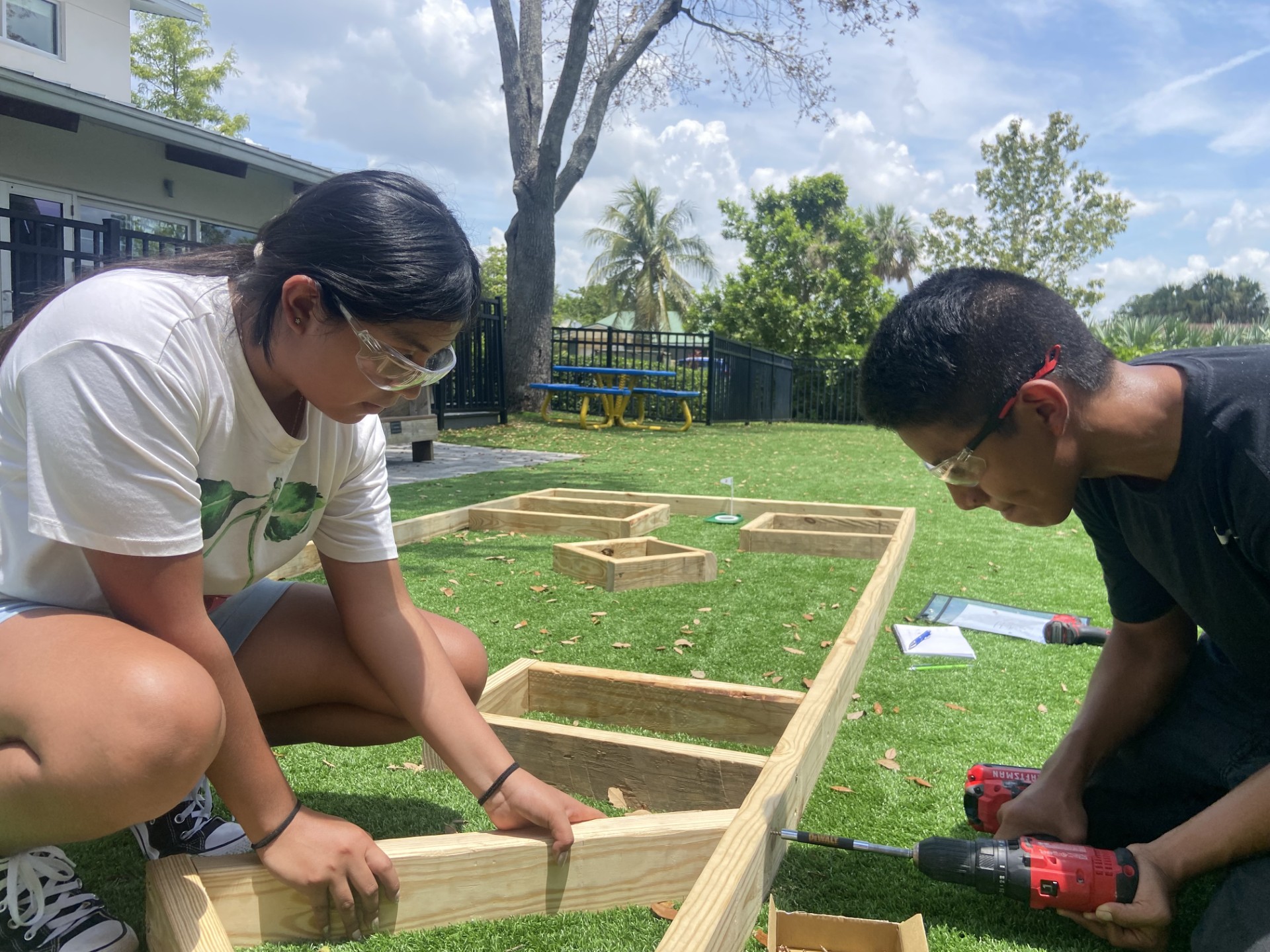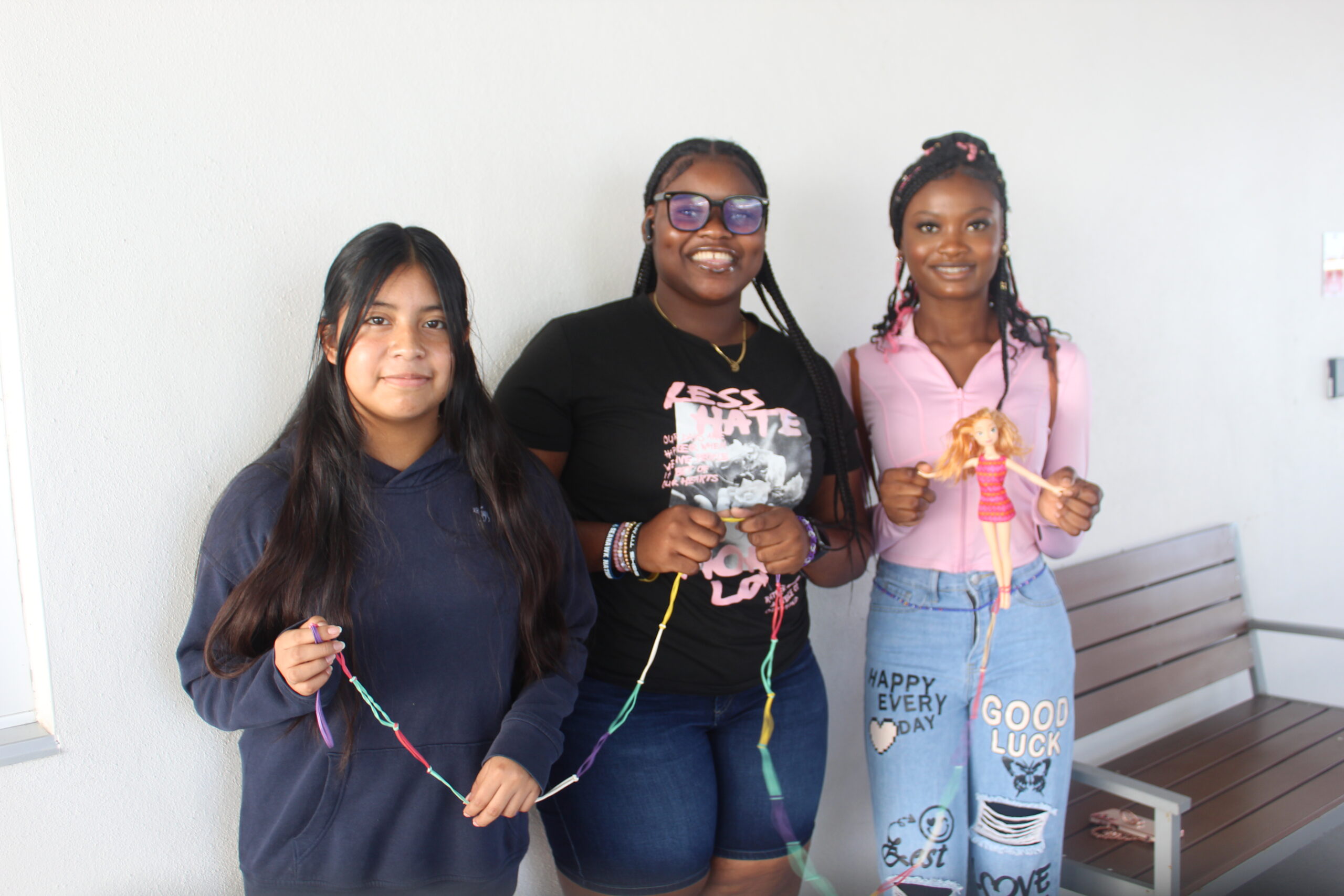By: Cheyenne Rogers
Today, poverty seems to be the topic of many conversations politically and morally. However, does simply talking about poverty break the cycle? This summer, I witnessed what happens when talk is turned into action.
For six weeks of my summer, I was a counselor for twenty-four rising third-grade campers at Grace Place, a non-profit organization with a “faith-based foundation” that serves over 800 individuals a year through education. Reverend Stephanie Munz-Campbell, the non-profit’s Executive Director, states that Grace Place targets its efforts on “the social change that can be achieved in an interrelated focus on child, family, school and neighborhood,” thus impacting poverty with three unique factors –family involvement, location, and faith. Together, these factors support a strong backbone for education.
Family Involvement
Among the Grace Place families in Golden Gate, Florida, over 85% are at or below the poverty threshold. Additionally, 99% do not speak English as their primary language and have “Limited English Proficiency.”
To help bridge this gap, Grace Place offers Adult English Language Learners programming. Current programming also includes “Bright Beginnings,” which educates parents of young children to be good mentors, and the six-week summer camp which also provides opportunities for parents to be involved.
Every morning, smiling parents bring their children to camp awake and on time, but that’s not where their role at Grace Place stops. They take time out from work and taking care of their homes to serve meals, clean classrooms, attend performances, and go on field trips with us.
Erika Garcia, Family Literary Assistant and parent of a third grade camper, says, “Studies show that parent involvement is important in determining academic success.” It also benefits the parents, she points out, “Because it helps them develop new skills which in turn gives them some sense of achievement and motivation.”
“This is how we have built a trust with the families we serve,” says Camp Director, Karina Sierra, “by first becoming partners for the same cause in helping children succeed.”
Location
A vital reason why families can be involved at Grace Place is because of its convenient location; it’s recognized as the “heart of the neighborhood.” Parents with transportation problems don’t have to worry about getting their kids to camp every day as long as they have their two feet.
Munz-Campbell says the Grace Place community has “learned that overcoming the barriers of language, economics, and education is most effective when it is rooted in the neighborhood where safe, supportive relationships of trust can be formed.” Grace Place’s locality allows families to see it as their second home, unafraid to ask for anything they need, be it clothes, food, or other necessities.
She continues, “[M]any of our families come from countries where they have learned not to trust institutions or authority figures.” Grace Place counters this cultural distrust by providing families with familiar faces who act as their “bridge to the schools and the community.”
Grace Place knows there’s something about having a home-style building in your backyard, working towards bettering your life and community, which builds a bond that cannot be easily broken.
Faith
Grace Place is aware of the strength faith has and its importance to the families.
Although Grace Place was founded by the local United Methodist Church, as Rev. Munz-Campbell tells us, “the core value of caring for our neighbors…is central to all the world religions.” She continues that “the understanding that all are welcome…resonates both with the families we serve and many of the people who come to volunteer.”
While religion is not a part of Grace Place’s curriculum, it can be seen through its values and campus. In the Character & Service program, for example, my campers and I would talk about pressing topics like anger, respect, gratitude, and faith, combining this with campus clean-ups, thank-you letters, and journal entries. My own class was also taught in the chapel, with Christian images reminding us of Grace Place’s religious foundation.
Education
Family involvement, location, and faith are the formula for Grace Place’s impact on education.
What started out nine years ago as a small homework club just fifteen minutes away from Rev. Stephanie’s and my hometown has grown into a neighborhood center that teaches life-skills and academics. Grace Place offers after-school tutoring, mentoring, career field trips, high school and college internships, and the summer camp, where I was a counselor for 142 first through eighth graders.
Grace Place’s summer camp prevents what Grace Place teacher, Sarah Nick, calls the “summer slump.” With the help of generous donors who sponsor individual students, the camp instead promotes intellectual development and physical activity. These six weeks allow teachers like Nick to get rid of the reading and math deficits that usually develop in their students.
This summer, the campers learned how to swim, examined the Florida ecosystems, and began to appreciate the arts through their production of “The Pied Piper.” They took trips to local museums, read, planted sunflowers, along with many more activities. For these children of Golden Gate, it was the structured opportunity of a lifetime.
According to the American Psychological Association, children in poverty are at greater risk for having “behavioral and socioemotional problems.” I saw, however, that with just six weeks of learning, inspiration, close attention, and fun, an at-risk child’s potential to succeed in life could grow immensely. The work of the passionate educators who had close relationships with children and their families really had an impact. To see my campers’ eyes light up during my lessons or their hand quickly shoot up to answer a question meant we were making a difference.
My own third grade camper, Rodrigo, puts it best saying, “Grace Place helps with my school goals, helps me meet new friends, and lets me have fun at the pool.” Without it, he’d “be bored and have nothing exciting to do.”
While being aware of twenty-four rambunctious and enthusiastic nine-year-olds at all times is not an easy job, the experience was absolutely worth it. This summer was hot, hectic, and adventure-filled, but most importantly it was eye-opening. There are some campers’ smiles that will be engraved into my memory forever and some parents’ strength that I will never surpass. These families are the backbone of our society and we need to work together with them, the schools, and the community to make our impact large and sustainable. Grace Place knows the formula for change and how much we’re going to gain by simply investing our time and turning our talk into a program for progress.
Grace Place combats poverty with education. With Philadelphia and Golden Gate having around 26% of their populations below the poverty line, Penn programs can learn from working in the same impactful ways of Grace Place. As future leaders, we Penn students can make this true social change, this large and lasting impact on poverty.
A special thank you to the University of Pennsylvania’s Impact Magazine for allowing us to republish Cheyenne’s Story.




